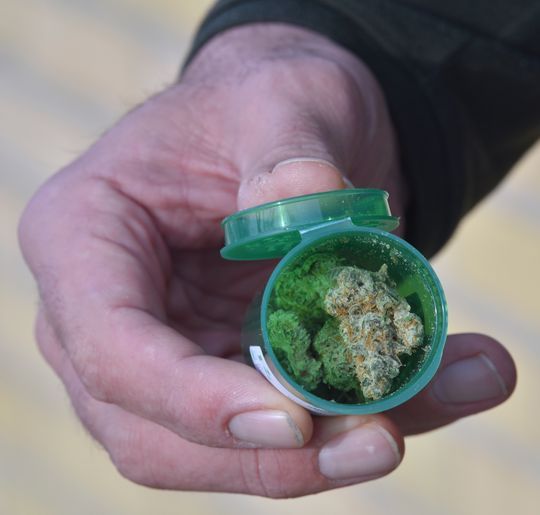Voters getting a say about marijuana sales
SIDNEY TOWNSHIP, Mich. (WOOD) – Voters in Michigan decriminalized recreational marijuana in November, but in the months that have followed, dozens of municipalities have opted out of a major part of the voter-approved proposition which allowed for the manufacture and sales of weed.
Local leaders can’t do anything about the fact that people can possess and grow marijuana for personal use, but they are stopping the sale and manufacturing.
The law that gave municipalities the right to do that gave voters the power to override the decision. Now that is starting to happen.
>>Full coverage: Marijuana in Michigan
David Overholt has been at the forefront of Michigan’s marijuana revolution for more than a decade after he was prosecuted for having a medical marijuana dispensary in Kent County. Even after medical marijuana was legalized.
But he continued to advocate for what he believes are the benefits of the leafy green and now he has seen the tide turn.
“If you would’ve just given the people on the western side of Michigan safe access to medical marijuana like I tried to do many years ago, you probably wouldn’t see recreational in Michigan right now,” Overholt told 24 Hour News 8.
When Proposal 1 passed in Michigan, it included language that would allow for businesses that sell and grow marijuana, but it gave municipalities the ability to opt out. That has happened in dozens of areas even where the proposal was approved by majorities of 60 percent.
But the proposal allows citizens to put the issue on the ballot to overturn a municipality’s decision to opt in or out, according to attorney Robert Hendricks, who was one of the architects of the proposal.
“It is designed to allow a fundamental democratic process at that very local level of the municipality that’s deciding to opt in or opt out,” Hendricks said.
To put it on the ballot, a citizen must gather signatures of registered voters in the municipality equaling 5 percent of the votes cast in the last gubernatorial election.
That’s just what Overholt is doing in Sidney Township, a rural community of about 2,000 people in Montcalm County.
“I hope that this what this will do is enlighten enough people to see that just because somebody that’s been in power for 25 years says no, it doesn’t mean no,” Overholt said.
Proposal 1 actually failed in Sidney Township by 40 votes out of about 1,100 cast. But Overholt believes the farming aspect will appeal to the agricultural community.
Overholt says his ballot proposal, for which he has to gather 188 signatures, is not looking for marijuana stores in Sidney Township.
“I’m only asking for farming. I live in a farm community and we need the revenue, we need public safety – number one thing,” Overholt said.
The proposal would allow grow operations of between 150 and 1,500 plants.
Overholt says he is hoping to lead a movement.
“My hope is to show other communities and to educate them on how to do this for free,” he said.
Regardless of whether Overholt is successful, experts believe these type or referendums will show up around the state.
“Now they feel like their local governments are not following through on the democratic wishes of the majority, I think you’re going to see this kind of action in not a few places in Michigan,” Hendricks said.

